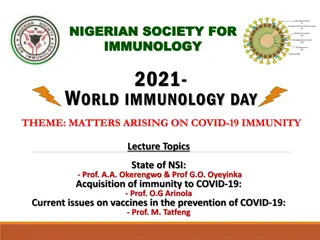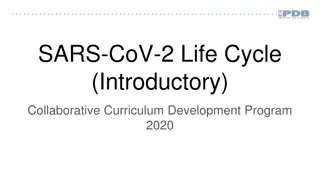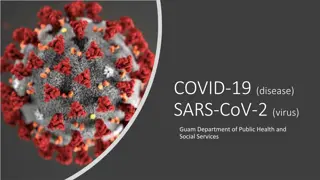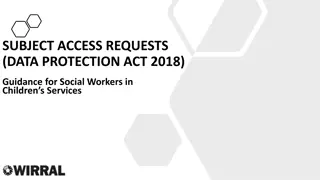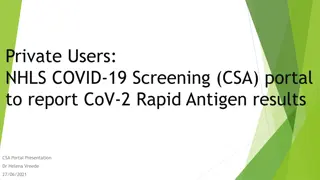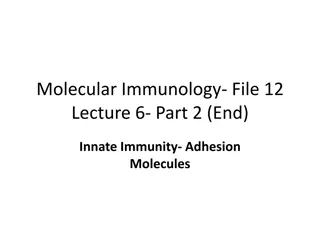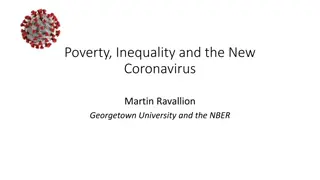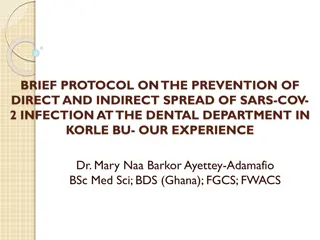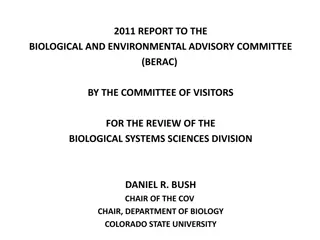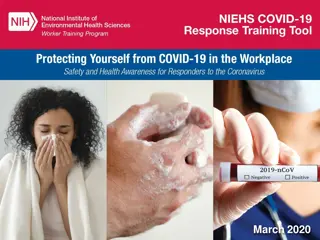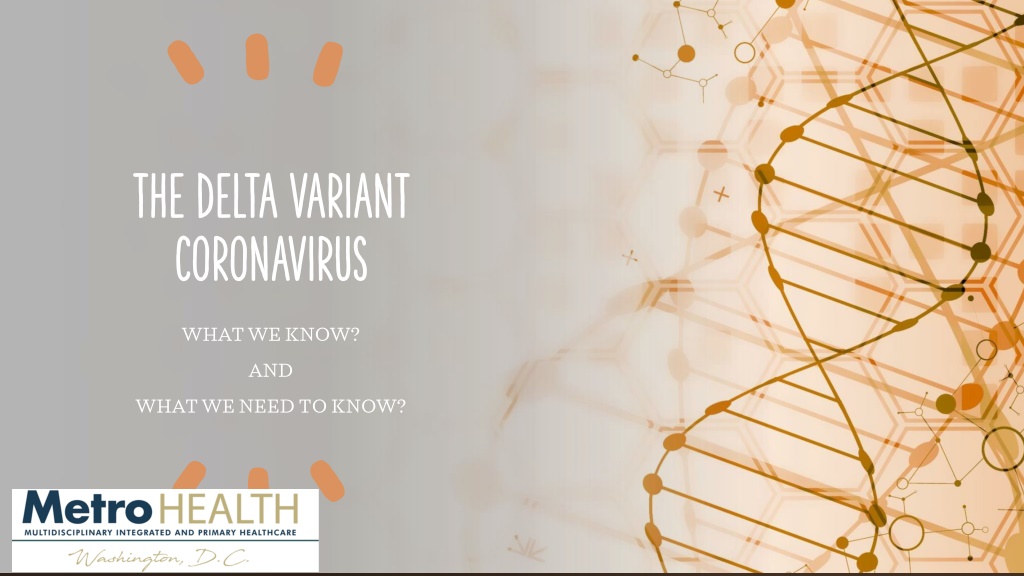
Understanding the Delta Variant of Coronavirus
Learn about the characteristics, classification, and implications of the Delta variant of the coronavirus, including its impact on diagnostic tests, treatments, and vaccines. Explore the different classes of SARS-CoV-2 variants and the potential attributes of concern associated with them.
Download Presentation

Please find below an Image/Link to download the presentation.
The content on the website is provided AS IS for your information and personal use only. It may not be sold, licensed, or shared on other websites without obtaining consent from the author. If you encounter any issues during the download, it is possible that the publisher has removed the file from their server.
You are allowed to download the files provided on this website for personal or commercial use, subject to the condition that they are used lawfully. All files are the property of their respective owners.
The content on the website is provided AS IS for your information and personal use only. It may not be sold, licensed, or shared on other websites without obtaining consent from the author.
E N D
Presentation Transcript
THE DELTA VARIANT CORONAVIRUS WHAT WE KNOW? AND WHAT WE NEED TO KNOW?
WHAT IS A VARIANT? Viruses constantly change through mutation Viruses constantly change through mutation. Sometimes new variants emerge and disappear. Other times, new variants persist. As expected, multiple variants of the virus that causes COVID-19 have been documented in the United States and globally during this pandemic. Scientists are studying the genetic differences between viruses to identify variants and how they are related to each other. Local and National Outbreak investigations are being carried to understand the trends of the variants.
TYPES OF VARIANTS OF SARS-CORONAVIRUS-2 A US government SARS-CoV-2 Interagency Group (SIG) developed a Variant Classification scheme that defines three classes of SARS-CoV-2 variants: Variant of Interest (VOI) Variant of Concern (VOC) Variant of High Consequence (VOHC) The B.1.1.7 (Alpha), B.1.351 (Beta), B.1.617.2 (Delta), and P.1 (Gamma) variants circulating in the United States are classified as variants of concern. To date, no variants of high consequence have been identified in the United States. To date, no variants of high consequence have been identified in the United States.
POSSIBLE ATTRIBUTES OF A VARIANT OF CONCERN Evidence of impact on diagnostic tests, treatments, or vaccines Evidence of increased transmissibility Evidence of increased disease severity Variants of concern might require one or more appropriate public health actions, such as notification to WHO under the International Health Regulations, reporting to CDC, local or regional efforts to control spread, increased testing, or research to determine the effectiveness of vaccines and treatments against the variant. Based on the characteristics of the variant, additional considerations may include the development of new diagnostics or the modification of vaccines or treatments.
VARIANTS OF CONCERN ALPHA ALPHA B.1.1.7 B.1.1.7 BETA BETA B.1.351 B.1.351 SOUTH AFRICA OCTOBER 2020 GAMMA GAMMA P.1 P.1 BRAZIL OCTOBER 2020 DELTA DELTA B.1.617.2 B.1.617.2 INDIA DECEMBER 2020 FIRST IDENTIFIED EMERGED UNITED KINGDOM SEPTEMBER 2020 REPORTED TRANSMITTABILITY DECEMBER 2020 INCREASED JANUARY 2021 INCREASED JANUARY 2021 INCREASED MARCH 2021 INCREASED DISEASE SEVERITY INCREASED NO INFORMATION NO INFORMATION NO INFORMATION VARIANT PROPORTIONS OTHER 9% 0.1% 3.8% 82.2% 82.2% POTENTIAL REINFECTION INCREASED FATALITY POTENTIAL REINFECTION POTENTIAL REINFECTION
WHAT DO WE KNOW ABOUT THE COVID-19 VACCINE? Effective against preventing COVID-19, including severe illness, and death. Effective against severe disease and death from variants of the virus that causes COVID-19 currently circulating in the U.S., including the Delta variant. Infections happen in only a small proportion of people who are fully vaccinated, even with the Delta variant. When these infections occur among vaccinated people, they tend to be mild. If you are fully vaccinated and become infected with the Delta variant, you can spread the virus to others. People with weakened immune systems, including people who take immunosuppressive medications, may not be protected even if fully vaccinated.
IF YOU ARE FULLY VACCINATED If you are fully vaccinated, you can participate in many of the activities that you did before the pandemic. To maximize protection from the Delta variant and prevent possibly spreading it to others, wear a mask indoors in public if you are in an area of substantial or high transmission. Wearing a mask is most important if you have a Weakened immune system Increased risk for severe disease because of your age / underlying medical condition Someone in your household has a weakened immune system / increased risk for severe disease / is unvaccinated. If this applies to you or your household, you might choose to wear a mask regardless of the level of transmission in your area. You should continue to wear a mask where required by laws, rules, regulations, or local guidance.
HOW TO PROTECT YOURSELF FROM COVID-19 Get a COVID-19 vaccine when it is available to you. Wear a mask that covers your nose and mouth to help protect yourself and others. Stay 6 feet apart from others who don t live with you. Avoid crowds and poorly ventilated indoor spaces. Wash your hands often with soap and water. Use hand sanitizer if soap and water aren t available.
REFERENCES https://www.cdc.gov/coronavirus/2019-ncov/variants/variant-info.html https://www.cdc.gov/coronavirus/2019-ncov/science/science-briefs/scientific-brief-emerging-variants.html
THE OMICRON VARIANT THE OMICRON VARIANT
ALPHA ALPHA B.1.1.7 B.1.1.7 BETA BETA B.1.351 B.1.351 SOUTH AFRICA OCTOBER 2020 GAMMA GAMMA P.1 P.1 BRAZIL OCTOBER 2020 DELTA DELTA B.1.617.2 B.1.617.2 INDIA DECEMBER 2020 FIRST IDENTIFIED EMERGED UNITED KINGDOM SEPTEMBER 2020 REPORTED TRANSMITTABILITY DECEMBER 2020 INCREASED JANUARY 2021 INCREASED JANUARY 2021 INCREASED MARCH 2021 INCREASED DISEASE SEVERITY INCREASED NO INFORMATION NO INFORMATION NO INFORMATION VARIANT PROPORTIONS OTHER 9% 0.1% 3.8% 82.2% 82.2% POTENTIAL REINFECTION INCREASED FATALITY POTENTIAL REINFECTION POTENTIAL REINFECTION
OMICRON OMICRON B.1.1.529 B.1.1.529 SOUTH AFRICA NOVEMBER 2021 Somemonoclonal antibody treatments may not be as effective against infection with Omicron. FIRST IDENTIFIED EMERGED REPORTED TRANSMITTABILITY NOVEMBER 2021 INCREASED DISEASE SEVERITY UNKNOWN VARIANT PROPORTIONS OTHER RISK FACTORS UNKNOWN UNKNOWN
ALPHA B.1.1.7 SEPTEMBER 2020 BETA B.1.351 OMICRON B.1.1.529 NOVEMBER 2021 SARS COV-2 Variants of Concern OCTOBER 2020 GAMMA P.1 OCTOBER 2020 DELTA B.1.617.2 DECEMBER 2020
Emergence of Omicron variant : Emphasis on the importance of vaccination and boosters. ***Everyone 5 and older should get vaccinated with COVID-19 vaccine. ***Everyone ages 18 years and older should get a COVID-19 booster dose. Breakthrough infections in people who are fully vaccinated are expected, but vaccines are effective at preventing severe illness, hospitalizations, and death. Early evidence suggests that fully vaccinated people who become infected with the Omicron variant can spread the virus to others. All FDA All FDA- -approved or authorized vaccines are expected to be effective against severe illness, approved or authorized vaccines are expected to be effective against severe illness, hospitalizations, and deaths. hospitalizations, and deaths. Follow Follow General Prevention Strategies General Prevention Strategiesagainst COVID against COVID- -19. 19.
WHY GET VACCINATED? Vaccines remain the best public health measure to protect people from COVID-19, slow transmission, and reduce the likelihood of new variants emerging. Vaccines are playing a crucial role in limiting spread of SARS-CoV-2 and minimizing severe disease. Low vaccination coverage may drive increases in cases, which also increases the chances that variants could emerge. Masks offer protection against all variants. This Photo by Unknown Author is licensed under CC BY
References https://www.cdc.gov/coronavirus/2019-ncov/variants/variant.html#types-of-variants https://www.cdc.gov/media/releases/2021/s1201-omicron-variant.html https://www.cdc.gov/media/releases/2021/s1126-B11-529-omicron.html https://www.cdc.gov/coronavirus/2019-ncov/vaccines/booster-shot.html How to Protect Yourself & Others | CDC



